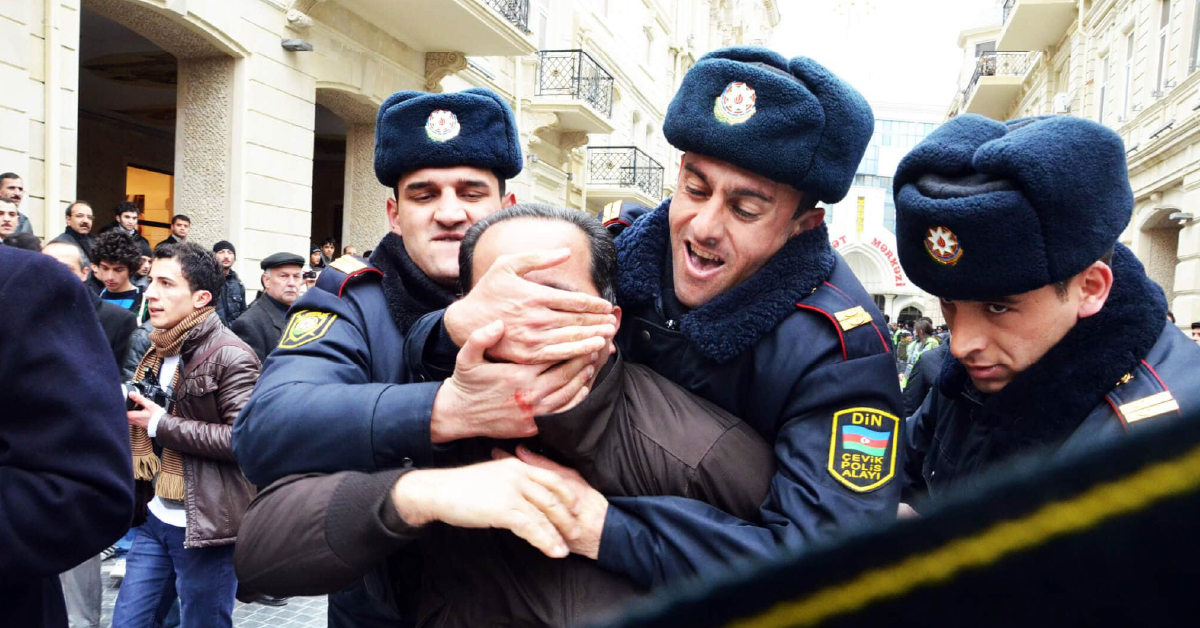2025
2025
2025-06-18

On June 8, 1998, Azerbaijani President Heydar Aliyev approved the “State Program for the Protection of Human Rights.” Since 2007, by presidential decree, June 18 has been celebrated in Azerbaijan as the National Day of Human Rights.
Against the backdrop of several decades of human rights violations, today an international symposium of ombudsmen was held in Baku under the title “Strengthening the Rule of Law: The Role of Ombudsmen and National Human Rights Institutions.” Panel discussions were held with the participation of local and international experts, ombudsmen, and heads of national human rights institutions. The discussion topics included: Ensuring constitutional rights through ombudsmen and national human rights institutions; Guaranteeing equal rights for all: positive practices and challenges; Enhancing international cooperation and positive practices in the protection of refugee rights.
Holding such an event in Baku is ironic. First, in his message, Azerbaijani President Ilham Aliyev, under the guise of “realizing human rights,” once again referred to Armenia as “Western Azerbaijan.” In doing so, he targeted the objective historical truths of the region and issued a threat toward Armenia.
On the other hand, for decades, Azerbaijan has consistently “maintained” its leading position in the sphere of human rights and civil liberties violations, which is an internationally recognized and documented fact.
Human Rights Watch, Amnesty International, numerous other international human rights groups, as well as the US Department of State, have repeatedly expressed concern in their reports over the state of human rights protection and the rule of law in Azerbaijan.
As of 2025, the international watchdog Freedom House rated Azerbaijan’s political rights at 0 out of 40, civil liberties at 7 out of 60, and internet freedom at 34 out of 100. The country’s overall freedom score stands at 7 out of 100, firmly placing Azerbaijan in the category of “Not Free” states.
In the Press Freedom Index published by Reporters Without Borders, Azerbaijan ranks 167th out of 180 countries, falling behind nations such as Afghanistan and North Korea.
In light of such 'brilliant' indicators, holding a human rights event in Azerbaijan is clearly beyond rational thought. It seems that in Azerbaijan, there is deliberate amnesia regarding the systemic oppression of national minorities, pervasive gender inequality (particularly violence against women), the total absence of a free press, the lack of genuine political opposition, the existence of political prisoners, and the fundamental disregard for basic human rights. All of this is the outcome of entrenched hereditary authoritarianism.
Another voluminous package of violations concerns to the Azerbaijani policy toward the Armenians of Nagorno-Karabakh—ranging from war crimes to the outright denial of their violated rights.
Was there any discussion at the symposium, for instance, of how Azerbaijan subjected 120,000 Armenians to a nine-month blockade, placing their right to life under direct threat? Was it mentioned that the entire population of Nagorno-Karabakh was, for months, deprived of the most basic living conditions, realization of the right to education, access to healthcare services?
And while “foreign experts, ombudsmen, and heads of national human rights institutions” were invited to Baku, did Azerbaijan’s human rights defender, Sabina Aliyeva, inform them that her functions are purely declarative, serving only as a tool for the authoritarian regime of Aliyev?
These are the questions that should have defined the content of any human rights symposium worthy of the name.
Holding such events is a cheap attempt by Azerbaijan to disguise the corrupt practices in which Azerbaijani society lives and is raised.